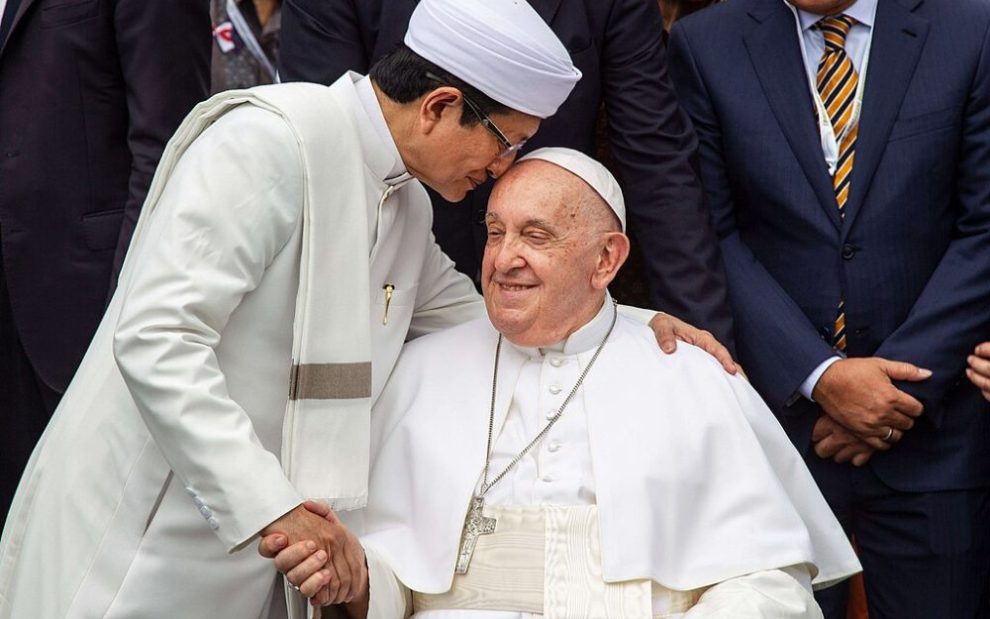“If we go in search of other people, other cultures, other ways of thinking, other religions, we come out of ourselves and begin that beautiful adventure that is called ‘dialogue’. Dialogue is very important for one’s maturity, because in relation with other people, relations with other culture, also in healthy relations with other religions, one grows; grows, matures.” (August 21, 2013, to a group of Japanese students)
When I was a teenager, I wasn’t sure I wanted to be a Catholic anymore. Like many young adults, I started exploring other religions. Perhaps somewhat ironically, in the wake of the attacks of September 11, 2001, I found myself fascinated with Islam. In conversations with new Muslim friends, I found myself asking new questions, not just about Islam, but also about Catholicism. My spiritual quest took me across the country for college and ultimately to the Middle East. In my early 20s, I lived in Amman, Jordan, where I was immersed in Islam. But I also found myself falling back in love with the Catholicism of my upbringing, appreciating in a new way the stories, songs, and sense of mystery I’d encountered as a child.
Since then, I’ve felt called to a vocation in Catholic-Muslim dialogue—learning more about Islam, growing in my Catholic faith, and bringing along other Catholics on this journey, too. Initially, it felt like an uphill trek and one that few Catholics were interested in taking. But when Pope Francis was elected in 2013, I felt I had a mentor and partner in this work. Just 10 days into his papacy, he indicated that interreligious dialogue, particularly with Muslims, would be an important part of his pontificate. And it certainly was.
Francis embarked on his own adventure of dialogue during his 12 years as pope, traveling to many Muslim-majority countries, meeting with countless leaders and ordinary people, visiting mosques, and issuing major declarations alongside his Muslim friends. Pope Francis’ decision to prioritize interreligious dialogue with Muslims felt like a validation of my own vocation.
While interreligious dialogue can be an exciting adventure, as Francis says, it can also be embodied—quite profoundly—in simple moments. Throughout his papacy, Francis often talked about dialogue as “sharing our joys and sorrows.” For him and the church, dialogue is ultimately about genuine, open-hearted relationships where both parties share of themselves and also receive what the other is offering.
In my own life, dialogue has most often consisted of simple moments with Muslim friends: Talking late into the night in a college dorm room. Discussing theology over tea in a Jordanian coffeeshop. Catching up over the phone or sharing a ride home from grad school. Watching the golden leaves fall in autumn or the flowers open up in spring. Sharing homecooked meals and watching our children play. In this “dialogue of life,” these friends have given me new glimpses of God. And the way they live out Islam has made me reflect more deeply as to how I am called to live out my own faith.
These experiences, I think, have helped me grow and mature, but not in a way that rejects what I was brought up with. Rather, dialogue has helped me settle back into Catholicism and cultivate the kind of faith that isn’t afraid of mystery. It has given me confidence to go out searching, to be on the lookout for the “God of surprises,” as Francis says, who will make Godself known to us where we least expect it.
This article also appears in the July 2025 issue of U.S. Catholic (Vol. 90, No. 7, pages 16-21). Click here to subscribe to the magazine.
Image: Wikimedia Commons















Add comment